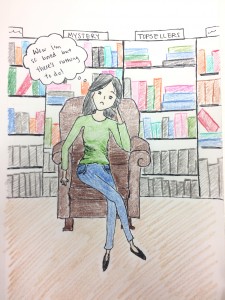(“Read it and Weep” might not have been the best entry into one’s column). As all of you probably know, our world has experienced a tragedy recently, and some of us are still finding it difficult to recover from the sounding of the death-knell: Bob Dylan has been awarded the Nobel Prize for Literature: Literature? Isn’t he a folk singer? Music? What does that have to do with words? In the windy city of Chicago these answers are apparently blowin’ in the wind. For some of the confused frustration was voiced recently in a column for The Chicago Maroon, a shade darker from Crimson.
Put aside for a minute the arrogance of a committee that demands praise for bestowing book awards on musicians. Put aside the fact that Nobel Committee ended a 25-year streak of not acknowledging American authors to honor Bob Dylan, of all people. After all, the slight isnt exactly new: Mark Twain, Henry James, Don DeLillo, Thomas Pynchon, John Updike, David Foster Wallace, and Kurt Vonnegut are just a few American giants snubbed by the Nobel committee. It would appear as though the Nobel Prize for Literature generally acknowledges excellence by ignoring it.
What really boggles the mind is how unsurprised we all are by the Dylan fiasco. Shouldnt we be more shocked? Shouldnt we care? Does anyone worry about the future of readingor is fretting over it now sort of like slapping a band-aid on a cold corpse?
Maybe Dylan is indeed a worthy recipient of such a prize in an era in which pleasure readers sometimes seem like members of an endangered species. Even here, at an elite university, pleasure reading is a chimera. Who has the time to read for fun? Ask students the last great book they read of their own volition, and youre likely to discover that theyhavent, not since high school. Ask students what their favorite novels are, and youre bound to assemble the standard curriculum of AP English. These books certainly belong in the pantheon of great literature, but it reflects a certain lack of intellectual curiosity that students only read novels when forced. But you probably shouldnt bother with these questions at all. Conversations about pleasure reading usually end with both parties feeling guilty and depressed.
Yet while putting aside all those considerations the author might also be pushing aside others that must valuably feature in any serious conversation about Dylan’s art: there’s one more reason to be guilty during conversations about reading for pleasure. For many of the great artists were in their time read for both pleasure and study. And many of these have touched us with their art in mediums other than words. Shakespeare, for example, wrote plays. Yet these are not brusqued aside as undeserving of literary study. When considering the art of musicians, then, we should be careful to assess each of these mediums on its own merits, while being careful to watch that our judgment of the art as a whole not be monopolized by the criteria of any particular one. That is, we must not let the fact that Dylan was an extraordinarily gifted musician blind us to the one that (though it might be hard to believe for those who are trying to avenge their favorite authors) the committee was able to see: first, that music uses words, and second, that in the case of Dylan, these were of tremendous imaginative power.
Read the full post at The Chicago Maroon

